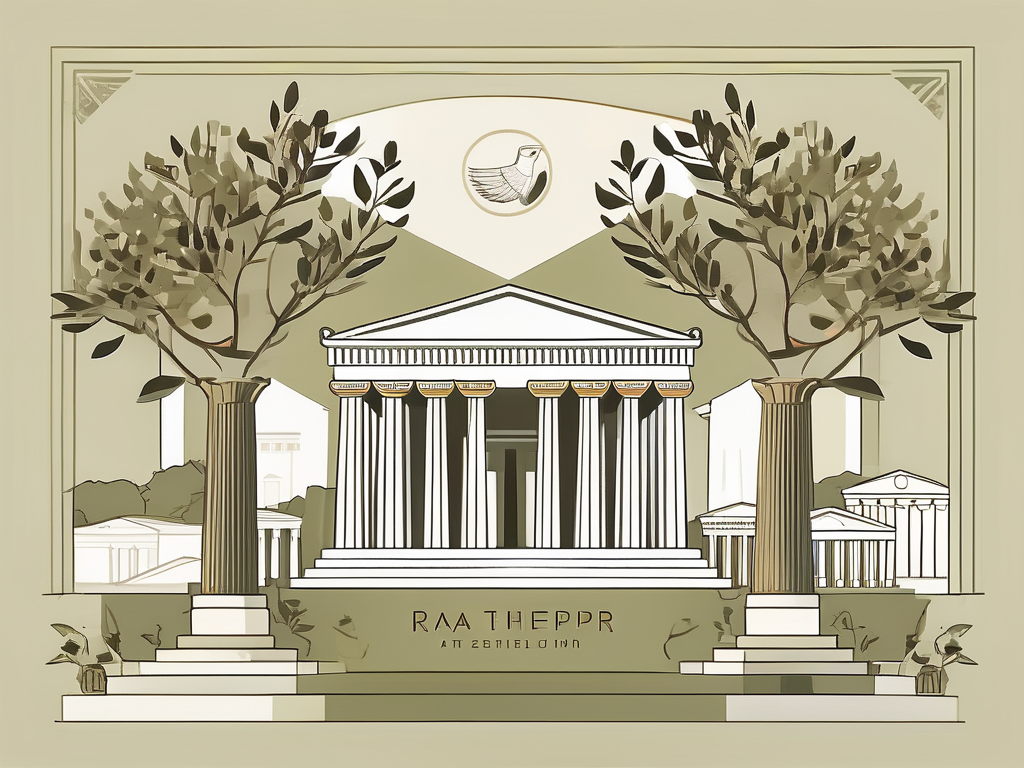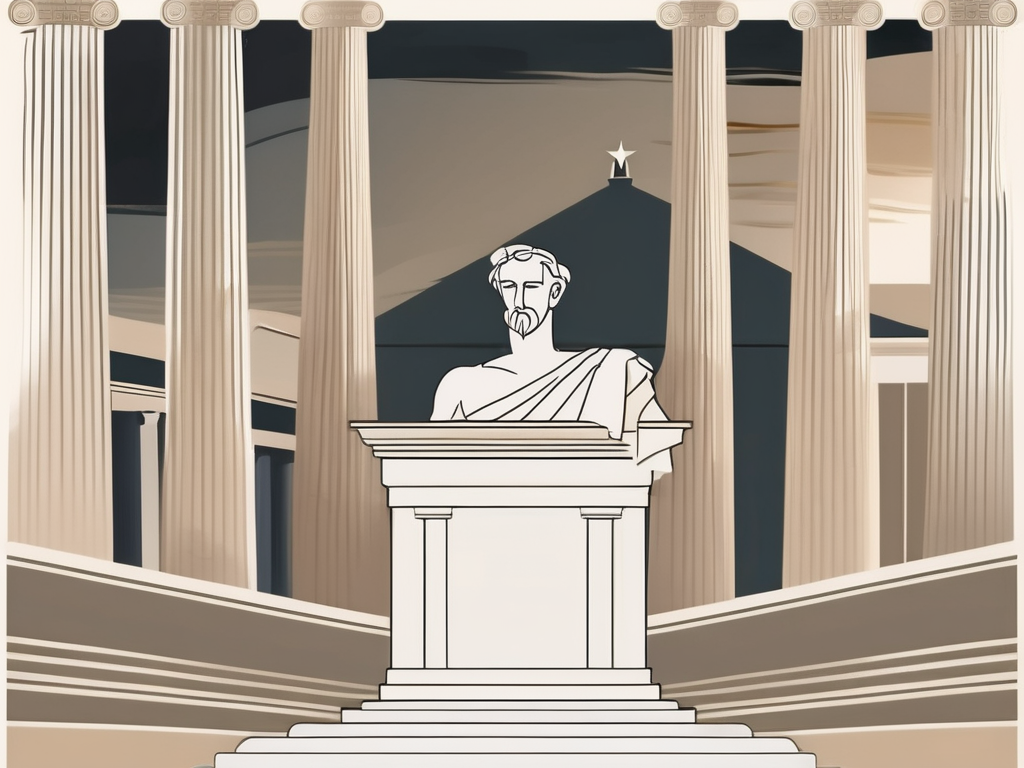Welcome to “The Influential Ancient Greek Philosophers: A Comprehensive Guide”! In this article, we will explore the world of ancient Greek philosophy and its enduring impact on modern thought. From the birth of Western philosophy to the Hellenistic philosophers, we will delve into the lives and ideas of some of the most influential thinkers of all time. So, let’s embark on this intellectual journey together!
Understanding the Importance of Ancient Greek Philosophy
Ancient Greek philosophy laid the foundation for Western thought and continues to shape our understanding of the world. It emerged in the 6th century BCE and revolutionized how humans perceive reality, knowledge, ethics, and more. The Greek philosophers explored fundamental questions about the nature of existence, the meaning of life, and the workings of the universe.
Ancient Greek philosophy was not just a mere intellectual pursuit; it was a way of life. Philosophers like Socrates, Plato, and Aristotle dedicated their lives to the pursuit of wisdom and the search for truth. They believed that philosophy was not just an academic discipline, but a means to live a virtuous and fulfilling life.
The Birth of Western Philosophy
The birth of Western philosophy is attributed to the Greek city-state of Miletus, where the first philosophers challenged traditional beliefs and sought rational explanations for natural phenomena. The likes of Thales, Anaximander, and Anaximenes questioned the role of mythology and introduced rationality and observation as tools for understanding the world.
Thales of Miletus, often considered the first philosopher, sought to explain the cosmos using naturalistic principles rather than mythological narratives. He believed that water was the fundamental substance from which everything originated. This revolutionary idea laid the groundwork for scientific thinking and set the stage for future philosophical inquiries.
As Greek philosophy evolved, different schools of thought emerged. The Sophists, for example, focused on rhetoric and the art of persuasion. They believed that truth was subjective and that individuals could shape their own reality through persuasive speech. This emphasis on rhetoric had a profound impact on the development of public speaking and communication skills.
The Impact on Modern Thought
The influence of ancient Greek philosophy can still be felt today in various areas of human knowledge. It shaped the development of scientific thinking, political theory, ethics, and aesthetics. The concepts of logic, reason, and critical thinking, pioneered by the Greek philosophers, are fundamental to the scientific method that guides modern scientific inquiry.
Moreover, Greek philosophical ideas have influenced political systems around the world. The notions of democracy, justice, and individual rights can be traced back to philosophers such as Plato and Aristotle. Plato’s “Republic” laid the groundwork for the concept of an ideal society governed by philosopher-kings, while Aristotle’s “Politics” explored different forms of government and their merits.
Ancient Greek philosophy also made significant contributions to ethics. The ethical theories of virtue ethics, consequentialism, and deontology can all be traced back to the works of Greek philosophers. Aristotle’s virtue ethics, for example, emphasized the cultivation of virtuous character traits as the key to living a good life.
In the realm of aesthetics, Greek philosophy introduced the concept of beauty as an objective and universal ideal. Philosophers like Plato believed that beauty was not just a matter of personal taste, but an inherent quality that could be found in the natural world and in works of art. This idea continues to influence our understanding and appreciation of beauty in various art forms.
Overall, ancient Greek philosophy has left an indelible mark on human thought and continues to shape our understanding of the world. Its legacy can be seen in the way we approach science, politics, ethics, and aesthetics. By delving into the profound questions posed by the Greek philosophers, we gain insights into the human condition and the nature of reality.
The Pre-Socratic Philosophers
Before Socrates, a group of thinkers known as the Pre-Socratic philosophers explored the nature of reality, challenging traditional beliefs and offering alternative explanations.
Thales of Miletus: The First Philosopher
Thales of Miletus’ belief that water was the fundamental substance marked a significant departure from mythological explanations of the world. According to Thales, all matter possessed qualities found in water, making it the primary element.
Thales’ theory of water as the fundamental substance had far-reaching implications. It challenged the prevailing belief in the gods as the ultimate source of all things and offered a rational explanation for the existence of the natural world. His ideas laid the foundation for future philosophical inquiries into the nature of reality.
Heraclitus and the Doctrine of Change
Heraclitus, known for his enigmatic writings, proposed that change was the fundamental characteristic of the universe. He famously remarked, “You cannot step into the same river twice,” emphasizing the constant flux and impermanence of all things.
Heraclitus’ philosophy of change had profound implications for how humans understood the world. It challenged the notion of a static and unchanging reality, highlighting the dynamic nature of existence. His ideas paved the way for a deeper exploration of the interconnectedness of all things and the ever-evolving nature of the universe.
Democritus and the Concept of Atomism
Democritus, one of the founders of atomism, believed that the universe consisted of indivisible particles called atoms. These atoms, he argued, combined in different shapes and arrangements to create the diversity of existence.
Democritus’ concept of atomism revolutionized the way people understood the composition of matter. By proposing that everything could be broken down into tiny, unchangeable particles, he challenged the prevailing belief in the infinite divisibility of matter. His ideas laid the groundwork for modern atomic theory and influenced subsequent scientific discoveries.
Furthermore, Democritus’ atomism had philosophical implications. It suggested that the world was not governed by divine intervention but rather by natural laws. This shift in thinking opened up new avenues for understanding the workings of the universe and human existence.
The Classical Philosophers
The classical period of ancient Greek philosophy introduced some of the most well-known and influential philosophers in history. These philosophers not only shaped the course of philosophy but also had a profound impact on various fields of study.
Socrates: The Father of Western Philosophy
Socrates was a key figure in ancient philosophy, known for his Socratic method of questioning. He encouraged critical self-examination and the pursuit of knowledge. Socrates believed that true wisdom comes from recognizing one’s own ignorance. He engaged in dialogues with his fellow citizens, challenging their beliefs and forcing them to think deeply about their assumptions. However, his unorthodox approach and controversial ideas ultimately led to his trial and execution.
Despite his tragic end, Socrates’ influence on Western philosophy cannot be overstated. His emphasis on self-reflection and the search for truth laid the foundation for the philosophical tradition that followed.
Plato and the Theory of Forms
Plato, a student of Socrates and the founder of the Academy in Athens, believed in the existence of an ideal world of Forms. According to him, the physical world is a mere reflection of these eternal and unchanging Forms. Plato saw the world as a flawed copy of the perfect Forms, which exist independently of our sensory experiences.
Plato’s philosophical ideas continue to be influential in fields such as metaphysics and epistemology. His theory of Forms raises questions about the nature of reality and the limits of human knowledge. It also explores the relationship between the material world and the realm of ideas. Plato’s dialogues, written in the form of conversations between Socrates and his interlocutors, provide a rich tapestry of philosophical insights.
Aristotle and the Foundation of Western Science
Aristotle, a student of Plato, contributed to a vast range of disciplines, including logic, physics, biology, and ethics. His systematic approach to knowledge laid the groundwork for scientific inquiry. Aristotle believed that knowledge could be acquired through observation and analysis of the natural world.
Aristotle’s ideas on causality and ethics continue to shape our understanding of the natural and moral worlds. He developed a comprehensive system of logic, which became the cornerstone of rational thinking. Aristotle’s works on biology, such as “On the Parts of Animals” and “On the Soul,” provided a framework for understanding living organisms and their functions.
Furthermore, Aristotle’s ethical theories explored the nature of virtue and the good life. He argued that moral excellence is achieved through the cultivation of virtuous habits and the pursuit of eudaimonia, a state of flourishing and fulfillment.
The contributions of Socrates, Plato, and Aristotle have left an indelible mark on the history of philosophy. Their ideas continue to be studied and debated, shaping our understanding of the world and our place in it.
The Hellenistic Philosophers
The Hellenistic period saw the spread of Greek culture and philosophy across the eastern Mediterranean, leading to the emergence of new philosophical schools.
Epicurus and the Pursuit of Pleasure
Epicurus advocated for a philosophy centered around achieving inner peace and happiness through the pursuit of pleasure and the avoidance of pain. His teachings emphasized the importance of friendship, simple pleasures, and a tranquil life.
Zeno and the Stoic Philosophy
Zeno of Citium founded the Stoic school of philosophy, which taught that virtue and reason were paramount for leading a good life. Stoicism emphasized the acceptance of one’s fate and the importance of self-control, resilience, and moral duty. It has inspired individuals throughout history, including notable figures like Marcus Aurelius and Seneca.
Pyrrho and the Skeptical School
Pyrrho of Elis challenged the notion of absolute truth, arguing that human perception and reasoning were inherently flawed. He advocated for suspending judgment, fostering tranquility through a state of complete impartiality. His skeptical philosophy questioned the possibility of attaining knowledge and certainty.
So there you have it! This comprehensive guide has given you a glimpse into the influential ancient Greek philosophers and their enduring impact on modern thought. From the birth of Western philosophy to the profound ideas of the Pre-Socratics, the classical philosophers, and the Hellenistic thinkers, Greek philosophy has undeniably shaped our understanding of the world and ourselves.
By exploring the philosophies of these remarkable individuals, we not only gain insight into their intellectual journeys but also gain a deeper appreciation for the rich tapestry of human thought and the timeless questions that continue to captivate us.












